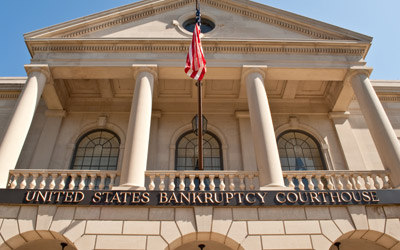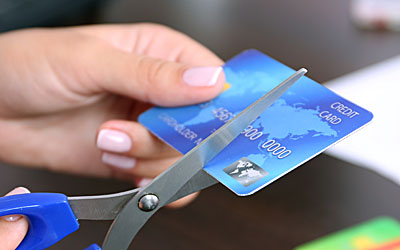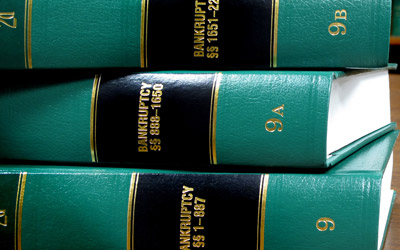Bankruptcy Articles
IS BANKRUPTCY THE RIGHT CHOICE FOR YOU?
The Top 10 Important Considerations
1. Bankruptcy is the easiest and fastest way to deal with all types of debt problems.
Bankruptcy is the legal process under federal law that is designed to help people and businesses get protection from their creditors. Life can be extremely unbearable if you receive 20 to 30 collection calls a day. Many of my clients can’t sleep because they worry about having their car repossessed. Moreover, many of my clients simply can’t take the stress anymore of dealing with debt collectors. Bankruptcy can be the right choice if you have no better way to deal with your debts. Although you may want to try other options first, you should not wait until the last minute to think about bankruptcy because some important bankruptcy rights may be lost if you delay. For example, you must receive budget and credit counseling from an approved credit counseling agency within 180 days before your bankruptcy case is filed. The credit counseling will usually take about a half of an hour to complete. Moreover, it is important to get your certificate of credit counseling if you believe that bankruptcy may be an option, especially if you may need to file an emergency case to stop a foreclosure sale or repossession.
2. Most bankruptcy cases are complicated.
Bankruptcy is not an easy legal process. Moreover, the bankruptcy process has become twice as complex after the BAPCPA was enacted in 2005. It is now imperative that you get the professional help of an experienced bankruptcy lawyer. Don’t be fooled into using a bankruptcy petition preparer. These types of services are shams and are full of charletons and “wanna be” lawyers. Bankruptcy is a legal proceeding with tons of complicated rules and paperwork. It is critical that you get professional legal help, especially if you hope to use bankruptcy to stop the foreclosure of your home, or to stop the repossession of your vehicle. Most bankruptcy attorneys will provide a free consultation to help you decide whether bankruptcy is the right choice for you. Moreover, most bankruptcy lawyers charge reasonable rates.
3. Bankruptcy temporarily stops almost all creditors from taking any steps against you except through the bankruptcy process.
This vital assistance is provided to you be the powerful “automatic stay.” The stay is automatically triggered as soon as you file the necessary paperwork at the start of your bankruptcy case. Foreclosures, repossessions, utility shut-offs, lawsuits, and other creditor actions will all be immediately stopped.
4. Bankruptcy can permanently wipe out your legal obligation to pay back many of your debts.
This is the most important aspect of filing for bankruptcy. This benefit arises because of the bankruptcy “discharge” that you obtain for successfully completing a bankruptcy case. Unfortunately, not all debts can be discharged. Certain debts, such as most student loans, liens associated with many secured debts, alimony, child support, alimony, and debts you incurred after the bankruptcy case was started, are not dischargable. Therefore, after your bankruptcy case is completed, you will continue to owe those debts.
5. When bankruptcy does not wipe out a debt, a chapter 13 bankruptcy gives you an opportunity to get caught up on that debt.
For example, if you are behind on a home mortgage or car loan, bankruptcy will not usually allow you to cancel the mortgage or lien and still keep the property without repayment. If you want to deal with debts of that type in the bankruptcy process, then you will need to propose a chapter 13 repayment plan. That requires affordable payments from your income over a period of three to five years.
6. In most cases you will not lose your property by filing for bankruptcy.
Most of your property will be legally protected from sale in the bankruptcy process by bankruptcy “exemptions.” However, if you have certain types of very valuable property, the bankruptcy law may not allow you to keep it unless you pay its value to your creditors over a number of years in a Chapter 13 plan.
7. The initial filing fee for bankruptcy is presently $274 under Chapter 13 and $299 under a Cchapter 7.
The filing fees to file for bankruptcy are quite reasonable especially when you consider how much debt you are wiping out. I certainly would consider pay a few hundred dollars in filing fees to get a fresh start.
8. If you file bankruptcy you usually do not need to go to court.
In the bankruptcy process you have to attend one meeting with the bankruptcy trustee and not with a judge. Your creditors are invited to that meeting but they rarely attend. You will not usually have to go to court for your bankruptcy case unless something out of the ordinary occurs. If you do receive a notice to go to court, it is important that you go. Before your case is closed, you must also take a course in personal finances, which will last for approximately for an hour and a half.
9. Bankruptcy will usually not make your credit report any worse.
Most people filing bankruptcy already are way behind on their bills and have a terrible credit report. It is highly unlikely that bankruptcy will make your credit report any worse. Some creditors may be more willing to lend you money than if you have a number of debts remaining in default. However, the fact that you filed bankruptcy can remain on your credit report for ten years, while your defaults may stay on your report for only seven years.
10. Watch out for bankruptcy related scams.
There are many people and companies that advertise bankruptcy related services in order to take advantage of vulnerable, financially distressed consumers. Some advertise help with foreclosure when all they really do is put you into bankruptcy without providing any advice on how this will help or assistance in getting through the process. Many of these businesses charge enormous fees. Others make promises which they cannot possibly keep. Do not pay money for debt counseling, foreclosure assistance, or bankruptcy without being sure you are dealing with a reputable business.






